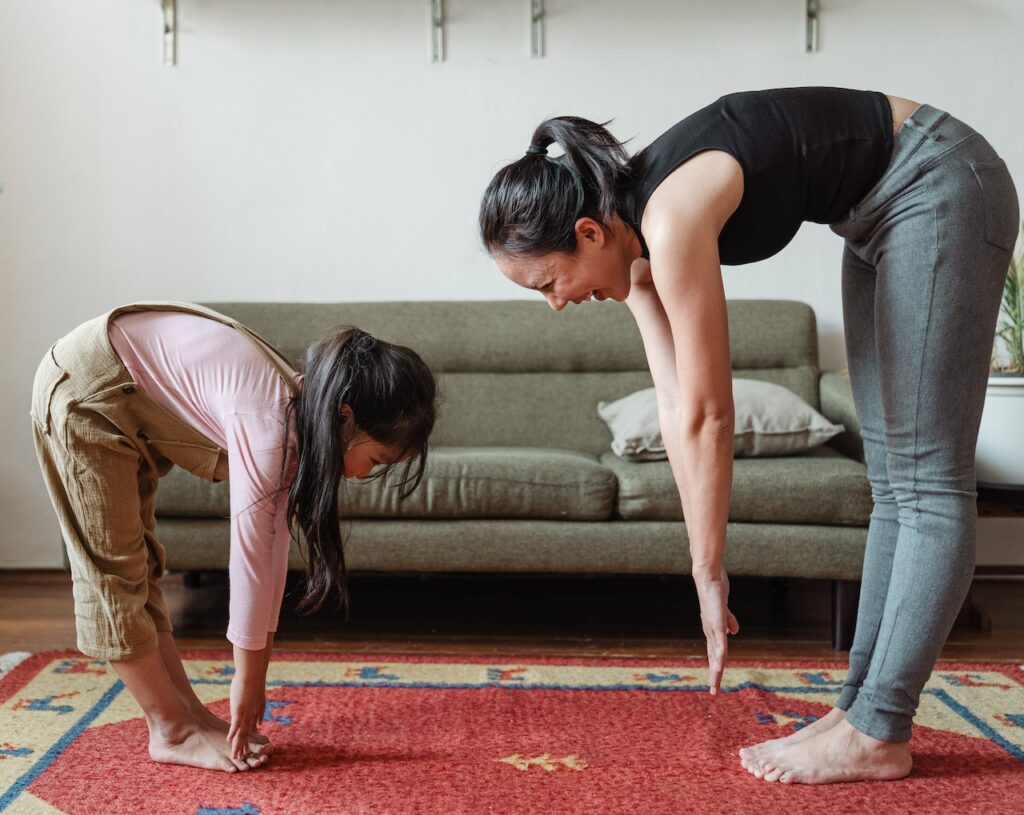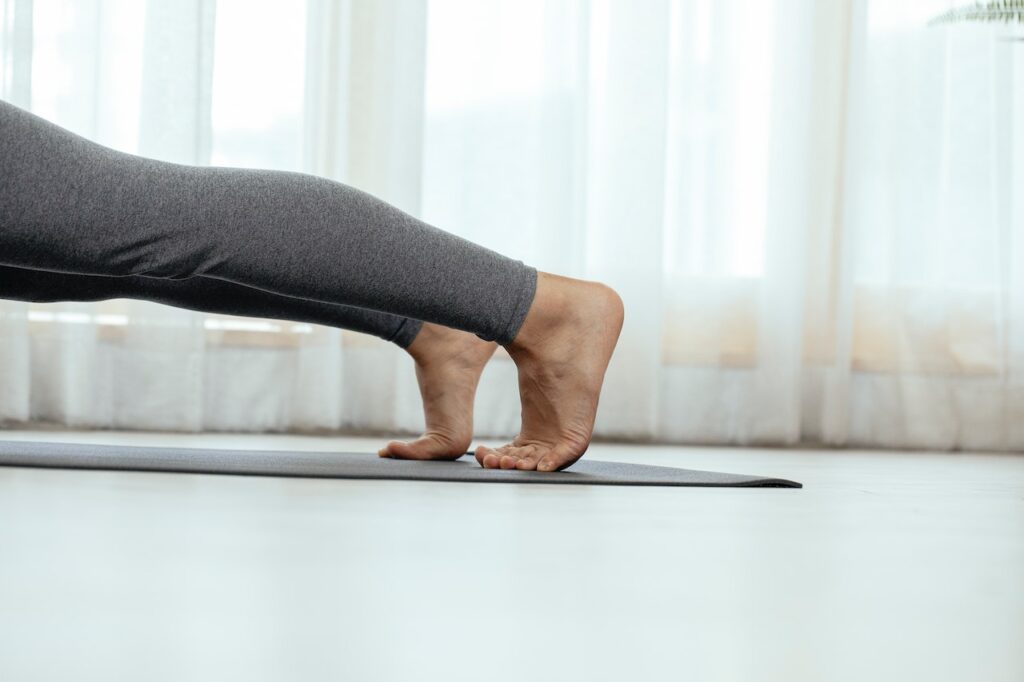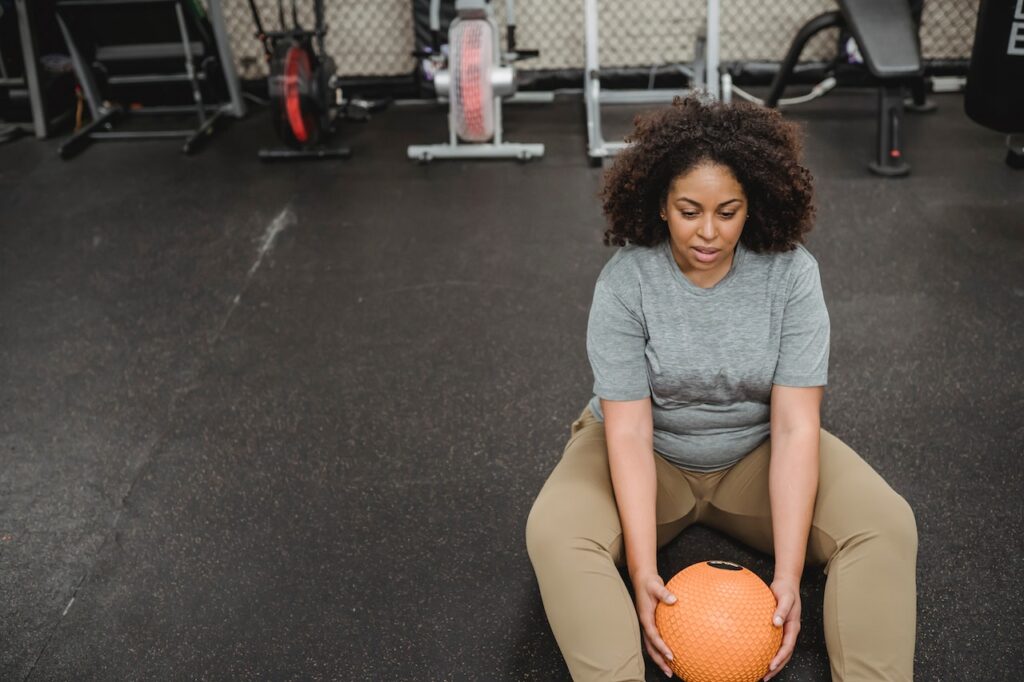“Why is my core so weak after pregnancy?”
I get this question ALL of the time, even from people who have given birth many years ago.

The answer to this question is: your abdominal muscles have been stretched for about 9 months, and if you have had a c-section, this is a major abdominal surgery that can weaken the abdominal muscles on top of being stretched.
And no, this does not mean you are doomed if you had a c-section, it just means that you may need to build up that strength at a slower pace than someone who did not.
Your abdominal muscles are like any other muscle in your body
I think it is important that we think of your abdominal muscles as any other muscle in your body.
For example, if you could do 20# bicep curls then kept your bicep in a stretched position for 9 months, you wouldn’t start right up with 20# after the fact, you would gradually increase the weight.
You could start at 5lbs, then 10lbs weaning your way back up to your goal.
If you didn’t wean into building the strength a few things would happen:
- You could develop tendonitis (the load to the bicep is too much and causing too much tension to the bicep tendon–this is the part that connects the bicep muscle to the bone.)
- You will use momentum to help, you may swing your hips or back forward to help complete the curl.
- You would hike your shoulder blade and upper body to help make the elbow bend with the weight.

Either way, none of these are ideal.
I think it’s interesting that we don’t think of the abdominals, and the pelvic floor muscles, this way.
Let’s now apply this to the abdominals.
If the load to the abdominals is too much, you make feel:
- Your low back arching
- Unable to keep your belly from pushing upward
- You may see diastasis recti (bulging from the middle part of the abdominals)
It’s harder to quantify abdominal strengthening exercises because they aren’t as objective as weights.
Here are some general guidelines:
-You should feel the muscle burn in the abdominals you are targeting
-You should be able to maintain pelvic control (not arching the back or twisting the pelvis)
-It should not be painful to your hips or back

Next you can progress abdominal strengthening in different ways.
Here is an example:
Tina was a client of mine and she has been complaining of constant weakness of her abdominal muscles despite working out for years after her pregnancy. At this point she was about 5 years since her latest pregnancy
The major thing she was doing was pushing herself back into the old routines she was doing prior to pregnancy. Because of this other muscles compensated to help:
-Low back muscles were tight
-And the hip flexors continued to be bothersome.
The biggest change we made was modifying her abdominal exercises.
Let’s go back to physics: when something is further away from our body, we know that it will be heavier than if it is closer.
For example, If you hold a 5# weight at your chest, then you hold it away from your body with your elbows extended, it is going to be harder even though it is the same weight.
The same goes for abdominal strengthening, if your legs or arms are further away from the abdominals the harder it is going to be. Here is an example.

Here are some examples of how to modify:
Flutter kicks
- Lay your upper body on the mat and bend your knees vs keeping them straight
- Bring your legs higher up in the air (vs lower down toward the floor)
- Try laying your upper body on the ground and complete marches vs legs straight
Planks (start from higher surface and gradually work your way to the ground)
- Try a plank a wall
- Then progress to a lower surfaces, like the back of a couch or counter
- Then to a bench
- Then to your knees
- Then to a full plank
Here is an idea of the movements
Planking form that is too hard
Each of these progressions can take weeks to move to the next one.

Remember to be patient with your body. It has pushed out a human which is a beautiful thing.
Give your body the time it needs to ease into your activities.
And yes, you may have had an easier time after your first baby, or in your 20s, but each birth and each pregnancy is different.
And everyone else has their own journey, some people may return to exercise more easily but may have other issues that they are dealing with (postpartum mental health issues, social support, breastfeeding issues, etc).
Be kind to yourself!
-Dr. Mary